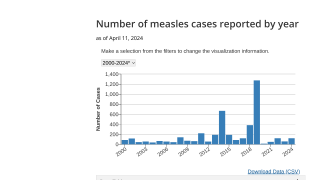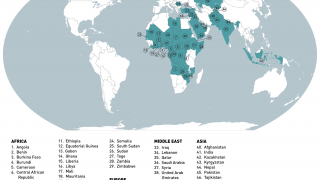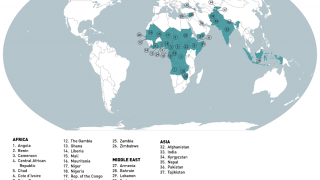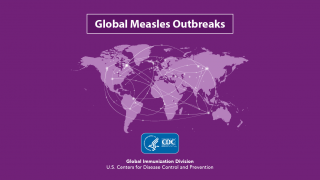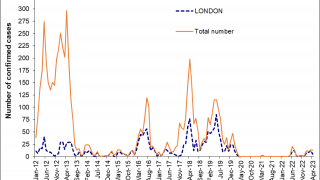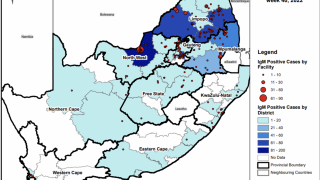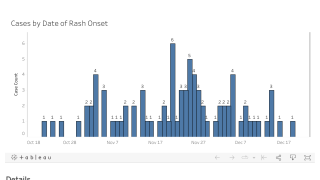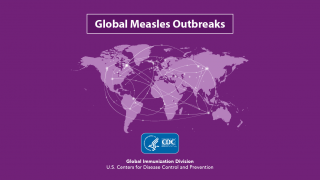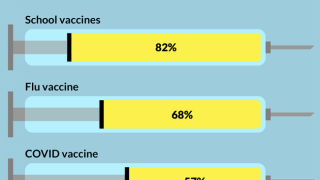A Measles Infection Significantly Reduces Immunity to Other Diseases

Measles infections in children can eliminate the immune system’s memory to fight off other illnesses, according to 2 new studies.
This is important news since these studies are the first to show definitive evidence that a measles virus infection can destroy important immune cells that ‘remember’ previous encounters with specific bacteria.
Which means, an immune system reduction can leave about 40 percent of children who recover from measles infection are vulnerable to other pathogens that they might have been protected from, before their bout with measles.
The findings, published on October 31, 2019, in Science and Science Immunology, come at a time when measles cases around the world during 2019.
‘These new studies highlight the importance of measles vaccinations,’ says Michael Mina, an infectious-disease immunologist at the Harvard T. H. Chan School of Public Health in Boston, Massachusetts, and a co-author of the Science paper.
‘And previous studies have suggested that the virus induces a kind of forgetfulness in the immune system,’ said Duane Wesemann, an immunologist at Brigham and Women’s Hospital in Boston.
‘When people get an infection, their immune system creates antibodies to fight it off.’
‘Once the body clears the infection, special immune cells remember that pathogen and help to mount a faster defense if the virus or bacterium invades again,’ said Wesemann.
Mina and his colleagues analyzed blood samples from 77 unvaccinated children from 3 schools in the Netherlands, taken before and after a measles outbreak in 2013. The team also collected blood samples from 33 children before and after their first vaccination against measles, mumps, and rubella (MMR).
These researchers analyzed the kids’ antibodies using a test that measures the amount, and the strength, of antibodies against thousands of viral and bacterial substances.
Two months after the unvaccinated children recovered from measles, the team found that the virus had erased 11–73 percent of their antibodies against other bacteria and viruses.
‘Although the reasons behind the high variability in antibody reduction are unclear, the finding shows that the virus alters previously acquired immune memory,’ Mina said.
Furthermore, ‘the children who received the MMR vaccine showed no reduction in these antibodies.' In fact, they retained over 90% of their antibody repertoires over similar time periods, the authors wrote in Science.
"Imagine that your immunity against pathogens is like carrying around a book of photographs of criminals, and someone punched a bunch of holes in it. It would then be much harder to recognize that criminal if you saw them, especially if the holes are punched over important features for recognition, like the eyes or mouth," Mina said in a statement.
This statement from Harvard Medical School also attempted to provide numerical context for the findings -- saying that if a person had 100 different antibodies against chickenpox prior to contracting measles, they might emerge with only 50, cutting their protection against chickenpox in half.
Mina and his team also infected macaques with measles and monitored the animals’ antibodies against other pathogens for 5-months.
These monkeys lost 40–60 percent of their antibodies against previously-encountered pathogens.
This suggests that the measles virus destroys otherwise-long-lived plasma cells in the bone marrow that can produce pathogen-specific antibodies for decades.
Additionally, measles seems to wipe out immune cells that ‘remember’ encounters with specific bacteria and viruses, according to a separate, independent team that published the Science Immunology study.
When these scientists analyzed blood samples from the same group of unvaccinated children in the Science study, the researchers found that those ‘memory’ cells had disappeared in the children who had contracted measles.
‘This finding emphasizes how the MMR vaccine protects against more than just measles,’ says Velislava Petrova, an immunologist at the Wellcome Sanger Institute in Hinxton, UK, who led the Science Immunology study.
It also prevents longer-term damage to the immune system that can lead to a resurgence of other diseases, she says.
It’s possible to rebuild someone’s suite of antibodies against specific bacteria and viruses by exposing them to those pathogens again, says Stephen Elledge, a geneticist at Harvard Medical School in Boston, and a co-author of the Science study.
But some children could develop life-threatening diseases as a result.
‘Every time you're infected with a virus, that's rolling the dice,’ Elledge says.
‘Clinicians could also consider giving people with measles a booster shot of vaccines they have previously received against other diseases,’ said Mina.
‘However various governments choose to address vaccinations, it’s crucial that countries prevent measles outbreaks by maintaining high vaccination rates against the virus.’
‘We have to do our best to ensure that measles remains on the elimination radar.’ Mina concluded.
Measles Vaccine news published by Precision Vaccinations
Our Trust Standards: Medical Advisory Committee




